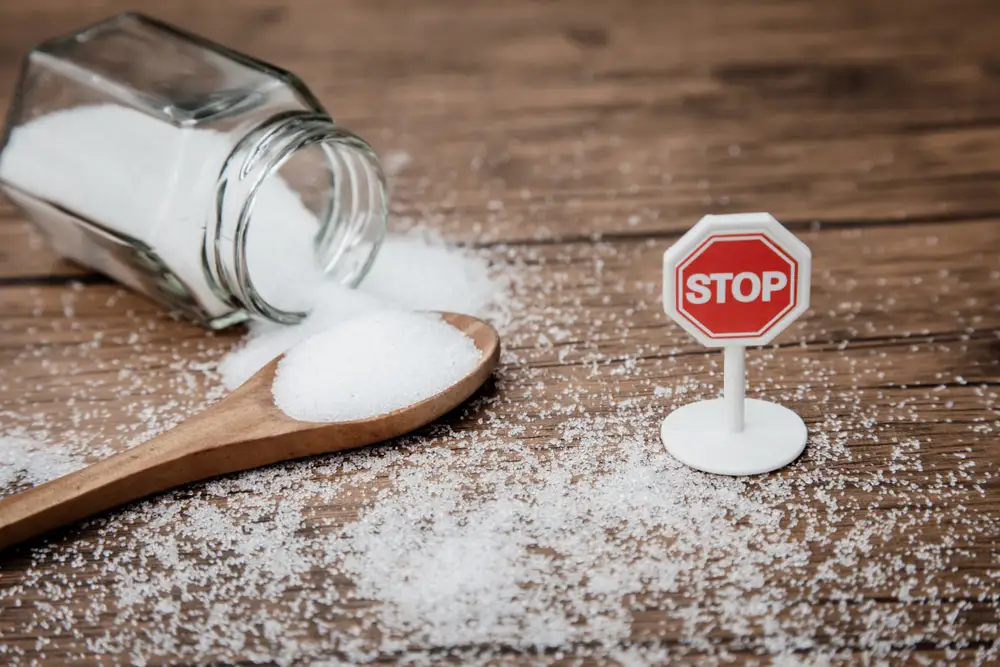According to research from the University of California, we can experience 27 distinct emotions1. Many of these are so similar that they’re hard to identify when we experience them. Are we just admiring our husband in his navy blue suit, or do we adore him? Are we feeling a sense of awe at the snow-capped mountain before us, or are we entranced? Maybe we’re both?
Fear and anxiety are another example of emotions that can be easily confused. They produce similar physiological effects, and are unpleasant to experience. So how do we tell them apart? What’s the difference between fear and anxiety?
Fear Vs Anxiety—How To Tell The Difference
Every emotion produces physiological and psychological effects that we can identify if we pay attention. Fear is an emotion that evolved to keep us safe, and is the reason that our species survived. A million years ago, if a human living on the Chinese continent saw a flash of black and orange, their heart would start pounding, their body would become doused with sweat, and they might struggle to breathe, which alerts them to the fact that they’d better get ready to fight the approaching tiger, or fly from it.
Anxiety is thought to have evolved as a way to protect us from future danger—about the possibility of us being ravaged by a tiger, rather than the reality. Our human who encountered the tiger may develop a sense of anxiety when returning to the same spot, because there’s a chance he’s entered the tiger’s territory, which may be watching him and licking its lips. As a result, he may decide to avoid the spot next time, which increases his chance of survival.
Fear produces some of the most obvious effects because it’s critical for us to pay attention to it (with the exception of someone suffering from a mental health condition such as a panic disorder, or PTSD). Anxiety also produces strong effects, but many of them are the same as fear, which can make it difficult to distinguish. But there are some clear differences between the two, particularly for how we behave. In the table below, you’ll find the physiological, psychological, and behavioural effects of anxiety vs fear, to help you identify what you’re feeling.
Effects Of Fear Vs Anxiety
| Fear | Anxiety (differences italicised) | |
| Physiological (body) | SweatingRapid heartbeatQuick breathingShortness of breathTremblingNauseaGoosebumpsTight chestHot flushes or chillsDry mouthUpset stomach | SweatingRapid heartbeatQuick breathingShortness of breathTremblingNauseaTight chestHot flushes or chillsUpset stomachDizzinessHeadachesMuscle pain |
| Psychological (mind) | A sense of doomFeeling overwhelmedFeeling out of controlFeeling detached from your bodyUnable to think clearly | A sense of doomFeeling overwhelmedUnable to think clearlyExcessive worryCatastrophizingObsessive thinkingRestlessnessRacing thoughtsIrritabilityFatigue |
| Behavioural | Running away or hiding (flight response)Freezing (freeze response)Clenched fistsViolent behaviour | Unable to sit stillSocial withdrawalEasily startledDifficulty performing everyday tasksAlcohol and drug usage |
Fight Or Flight—Anxiety Or Fear?
The fight or flight response is how our body reacts to extreme fear, triggering a choice between fighting the threat before us, or running away from it. This response is extreme, easily identifiable, and is in the realm of fear rather than anxiety.
References
- Bruce Y. Lee, 2017, Here Are The 27 Different Human Emotions, According To A Study, Forbes
What Causes Mouth Ulcers? How To Treat & Prevent Them Effectively
Mouth ulcers are a common oral condition that affect most people at some point in their lives. They can be uncomfortable, but they are usually harmless and will heal within 10 to 14 days without treatment. Here’s everything you need to know about mouth ulcers, including what they are, what causes them, the best treatments,…
Acute Vs Chronic Medical Conditions
No matter how old or young you are, we are all susceptible to acute and chronic medical conditions. Both conditions differ in how long they last and how severe the diagnosis is. An illness or condition can be as simple as the flu, or in a more severe case cancer or arthritis. Whether it is…
How Much Sugar Per Day?
Sugar is a type of carbohydrate and a source of energy for our bodies. It can occur naturally in foods like fructose in fruit, glucose in fruits and vegetables, and maltose in wheat and barley. However, manufacturers also often add sugar to extend the shelf life of foods, improve their appearance and/or make them taste…




